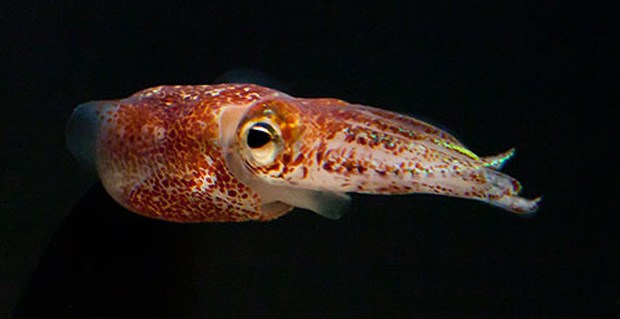Beneficial bacteria in Hawaiian squid attracted to fatty acids
 Hawaiian bobtail squid. Image courtesy of the Squid and Vibrio Labs.
Hawaiian bobtail squid. Image courtesy of the Squid and Vibrio Labs.The small but charismatic Hawaiian bobtail squid is known for its predator-fooling light organ. To survive, the nocturnal cephalopod depends on a mutually beneficial relationship with the luminescent bacterium, Vibrio fischeri, which gives it the ability to mimic moonlight on the surface of the ocean, and deceive monk seals and other predators that would happily make a meal of the small creature.
A study published recently in Applied and Environmental Microbiology by Edward “Ned” Ruby, professor at the Pacific Biosciences Research Center and colleagues from the University of Wisconsin–Madison revealed that Vibrio fischeri has a novel type of receptors that sense the presence and concentration of fatty acids, a building block of all cell membranes. This class of receptors allows a bacterium to migrate toward short-chain fatty acids—a phenomenon referred to as chemotaxis.
“This is the first example of a receptor for this class of compounds, and this receptor appears to have evolved in, and be restricted to, the Vibrionaceae family of marine bacteria,” said Ruby.
Read more about it in the UH System News.



